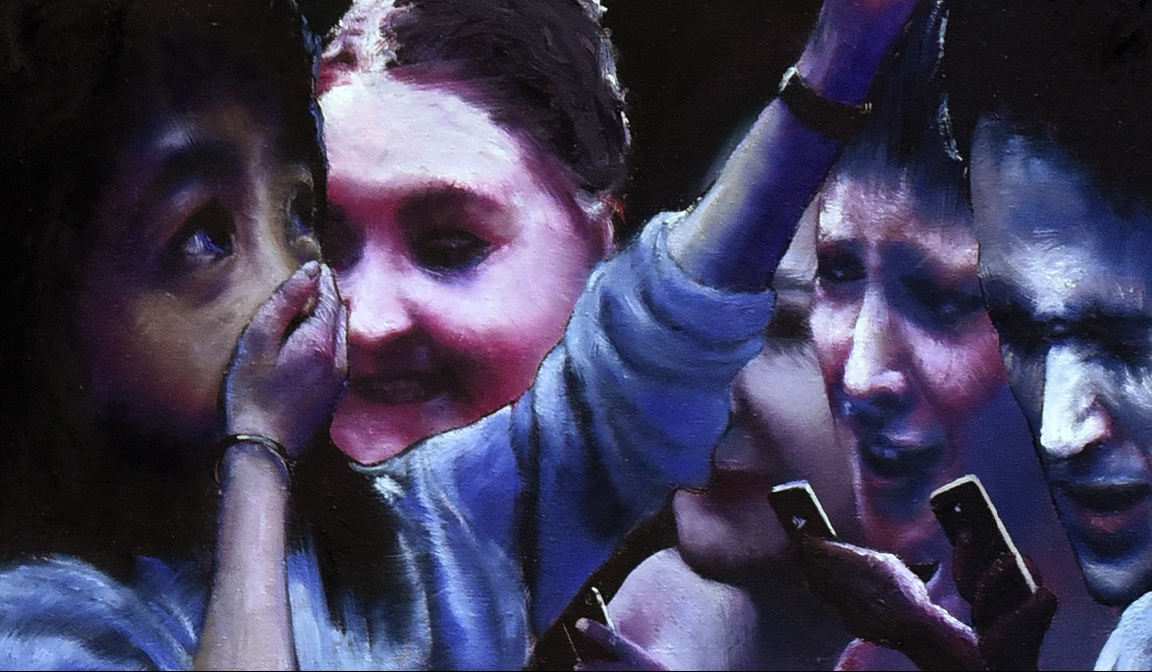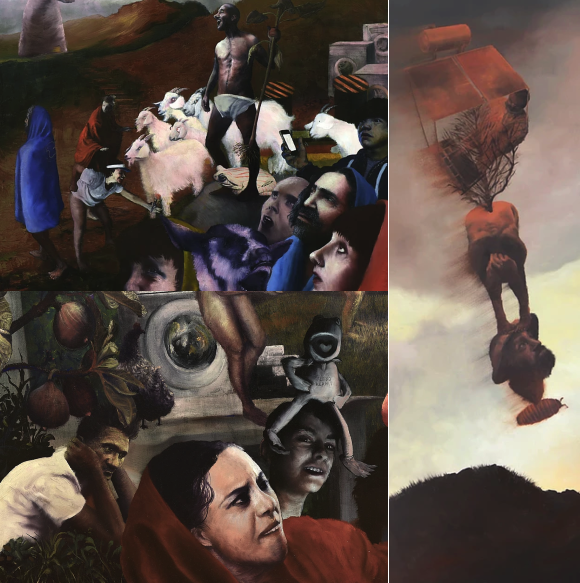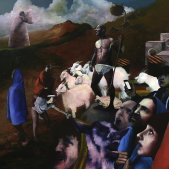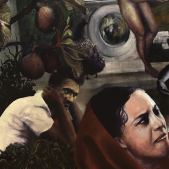
Τhe Greek artist who won the Graduate Art Prize 2018
The Greek artist Theodoros “Theo” Bargiotas was awarded ARTIQ Graduate Art Prize 2018. This is a competition that annually highlights the work of an artist from all graduates of undergraduate and postgraduate programs of Fine Arts in Britain.
The piece that won the most votes and the contest is the large-scale painting project that exudes sci-fi dystrophy aura, titled “Untitled”. The prize, other than the sum of money, includes a representation contract with ARTIQ.

Theo commented on his win, “It is truly a pleasure to be a part of The Graduate Art Prize. Winning enables my cosmology to be communicated to an audience outside of the strictly academic world, which is a necessary process for the artist and audience. All in all, winning a prize is, of course, enjoyable but the most significant aspect is that the work gets seen. The bigger the prize, the greater the audience, and this is what pleases me.”
“The ultimate goal is not simply to display works or to make a career through painting but work to be viewed and communicated correctly – something that has been achieved through this competition. Modern art is lacking in real “charm. Something that was commented a lot was how well painted the piece is and I think it was appreciated since it is a scarce thing nowadays,” he comments, stressing that ” The Greek School of Fine Arts promotes really good painting and that is why Greek artists excel abroad.”

Regarding the meaning of the work of “Untitled”, the artist explains that it is an exploration of “what it means to be human. And I’m exploring this by thinking about what it means not to be human, in the modern digital world. My goal is not to bind the work, however, so that each viewer interprets it in their own way. ”
Patrick McCrae, CEO of ARTIQ, commented on this year’s shortlisted works: “It’s great this year to see such a variety of artworks making the shortlist. There are paintings, illustrated works, sculptures, collages and textile art, presented on or in canvas, wood, paper, aluminium and porcelain. It never gets any less exciting to view the submissions and the range and quality seem to be consistently getting better, with a great number of colleges getting involved and helping their graduates get the possibility of a real head start in their careers. We’re very proud to be able to offer that.”

Theo Bargiotas, in 2004, received a degree from the Athens Law School. “Similarly to thousands of young lawyers, I worked from morning till night for pocket money. I also tried opening my own law firm. But the crisis had already taken place and the money wasn’t even enough for my insurance contributions,” the award-winning painter said at Kathimerini.
After the closure of his office and the reward of a big case he won, he got isolated, studied well and, the next year, he tried entering the Fine Arts School of Athens. He graduated with Excellent under the supervision of Professors Pantelis Chandris and Marios Spiliopoulos and then completed a Master’s of Visual Arts at Oxford University. He continued his studies with a Ph.D. in “Theory of Culture” at the University of Louisiana in the USA, where he also teaches as an assistant professor.

Theo’s painting procedure and technique is a result of researching early modern European art, especially Dutch and Flemish Renaissance/Baroque painting. He creates his own oil painting mediums, having thoroughly researched recipes from the Old Masters and contemporary conservators. “This alchemistic approach gives me a feeling of continuation of a tradition beginning 30,000 years ago in the caves of Chauvet where my predecessors portrayed their charcoal impressions of the world around them,” he stated.
“We are fragile creatures constantly trying to interpret pieces of truth in the wilderness,” Theo shared. “A perceptive artist’s role is to recognize these little fragments of truth and depict them. The artist should capture that dream moment that most people suspect exists, but only s/he can immortalize and portray. This is a crucial mission for the painter today; trying to detect the sublime and spiritual in everyday gestures and circumstances, probing the dark side of the moon, and showing it to humanity in the form of a picture, a painting.”
















